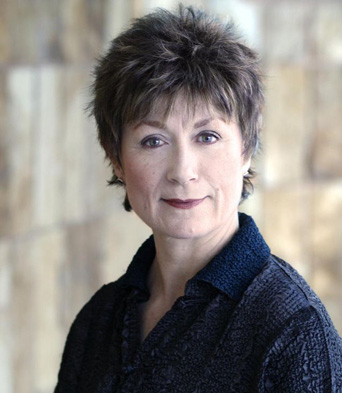Diane D'Aquila

Diane performs in the world premiere of a new version of Checkov’s The Seagull, adapted and directed by Peter Hinton, at the Segal Centre, from February 2 to 16, 2014.
She was interviewed in May 2009, while she was teaching at the NTS.
What are you working on right now?
I’m working on the Shakespeare Project with the 2nd year Acting students. We’re doing Henry VI, Parts I, II and III, which were the first three plays that Shakespeare wrote; I’ve condensed them into one evening. Hopefully, we’ll come in at under three hours, with two intermissions.
Every time you cut Shakespeare, you learn more and more about it. His first plays are very muscular, sexy and live in the land of swashbuckle with just a hint of melodrama lurking in the background. And when you cut it, the swashbuckle aspect of the plays comes even more to the fold. There are 19 fights in this production and every actor participates. The hardest thing for the actor to do in playing Shakespeare is to get on your voice, say what you mean, think at the same time and breathe what you’re thinking, getting it all together. The energy of the swashbuckle is good, it helps them find it.
If they, the actors and crew, embrace Shakespeare and love him with as much passion as I do, than I’ve accomplished something.
What did it feel like to return to the NTS?
Well, I graduated in 1972 and last year was the first time I’d been back, to direct Richard III. When I walked into the Pauline McGibbon Studio, after 30 years, memories came flooding back and I broke into tears. It’s fantastic coming back, I just love this room. However, back in our day, we didn’t have a whole team behind us: we brought in our own props and costumes…there was maybe something that looked vaguely like a set… a chair and a table, we used the natural light… I was amazed when I saw everything we had to play with. I asked for scaffolding and I got scaffolding!
What is your favourite thing about your profession?
My favourite part of acting is the rehearsal process, not to say that I don’t enjoy sharing it with an audience. But the digging and exploring beforehand is wonderful. I like the Sherlock Holmes approach to theatre, a good play will tell you what to do, all the clues are there. The difficult part is doing it, making it effortless and believable to the audience. The French have it right – répétition – the more you do it, the more you learn. And if you hang in, you get better. Us old dogs, we get better just by the fact that we’ve been doing it for so long. With age comes wisdom, and that can only make you a better actor. I’m not afraid of making my weaknesses my strengths and making my strengths, my weaknesses. I couldn’t have done that in my youth, I wouldn’t have known what it meant.
Right now, though, I love directing! It’s so easy in this business to become complacent. It’s easy to fall into habits, become lazy. I like challenge, I like going into the unknown and I don’t ever want to stop doing that. Sometimes, the opportunities to experience those challenges are harder to find in acting, which is why I’m so much more excited about directing these days.
What advice would you give young actors starting out?
You can’t just say to someone “believe in yourself,” because it won’t automatically make them confident. But what I can say to someone is that when you make your choices in a play, commit to them 100% and play them to the fullest. They may be the wrong choices – so be it. Hopefully a good director will tell you and get you back on line. But I have learned more from my failures as an actor than I have from my successes. So, I would say commit to the work ethic and through that, your confidence will build and will grow.
What aspect of your training at the NTS did you find most useful when you left the School?
I arrived at the NTS during a very tumultuous period: in 1969 there was the Vietnam War, the FLQ crisis, changes at the School… My class was small because a lot of actors left before the end of the three years. But, I got a very good solid foundation at the NTS, only I didn’t know it at the time. Remember, I was only 19 and at that age, you think you know everything. Most importantly, what existed then and still exists now is the fact the NTS opens doors.
What would you have done if you hadn’t become an actress?
I can’t image what I would’ve done! I always joked that I would’ve liked to become a veterinarian. Although I wasn’t strong enough in math and sciences so I don’t think that would’ve worked. If you could be paid to be a Girl Scout den mother, I would’ve been good at that, I think. Herding people around, giving them what they need. Which is not unlike directing theatre: you have to know when to say something, how to be patient when giving a note to an actor so that it will register.
Certainly, my most successful job has been as a mother to my two children, who are currently in university. I feel I’ve done a better job at that than anything else I’ve done in my life.
“If I’d known then what I know now…”
I’d like to say that I would have done things differently – better – but acting is something I had wanted to do since I was 9, so I suspect this is it. I have no regrets.
Photo: Gary Goddard Agency
